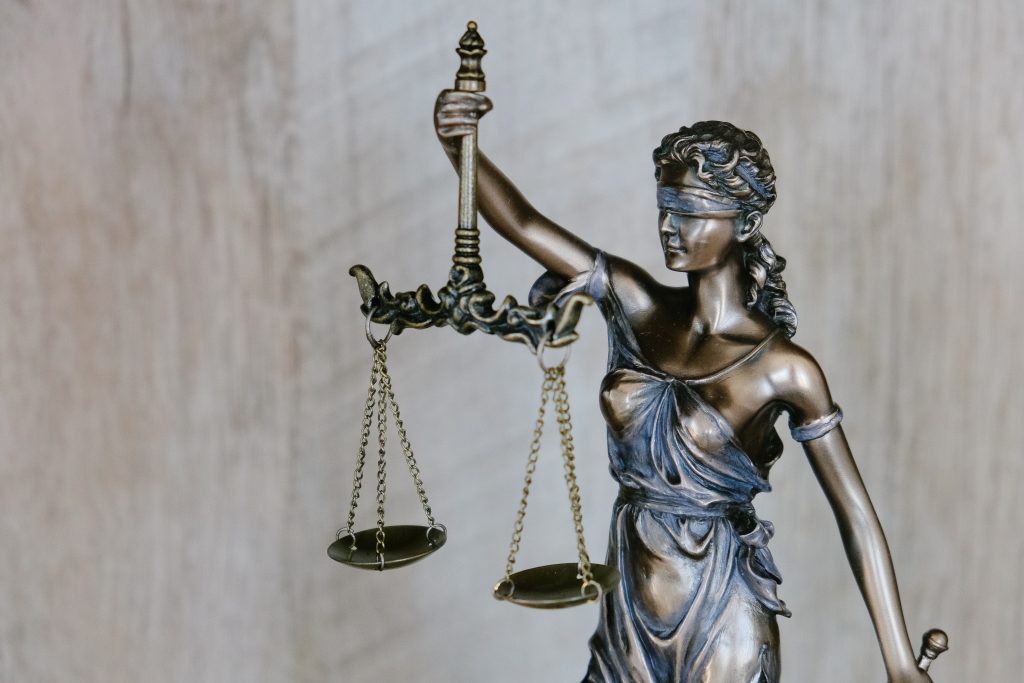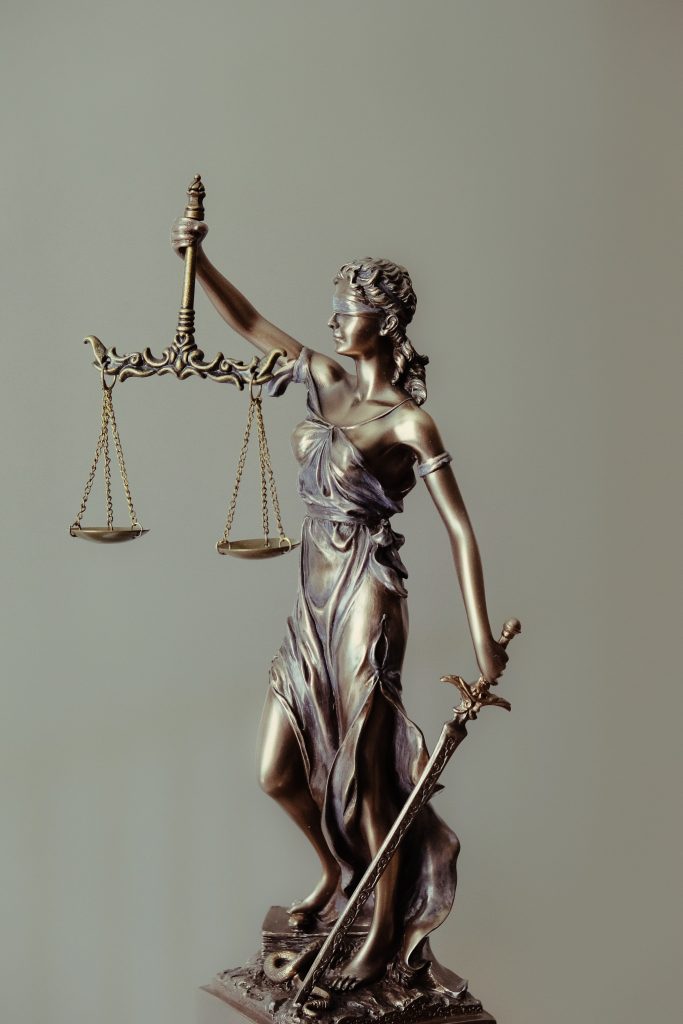In this article, you will learn about crafting compelling content for a criminal defense attorney’s website blog. You’ll understand the importance of understanding your target audience and their needs, and how to create informative posts that explain complex legal concepts in a clear and accessible manner. You’ll also discover techniques to showcase your expertise and experience through engaging case studies and real-life scenarios, and how to address common legal concerns directly, providing reassurance and guidance. Additionally, you’ll learn about the importance of incorporating personal stories to create emotional connections and optimizing your content for search engines. Lastly, you’ll understand the significance of including a clear call-to-action in every blog post to prompt potential clients to seek assistance promptly.
Criminal Law
Introduction
Criminal law is a branch of law that deals with offenses committed against society as a whole. It establishes a system of rules and regulations that define what behaviors are considered criminal and the penalties that accompany them. Throughout history, criminal law has evolved to reflect the changing societal norms and values.
What is Criminal Law?
Definition of criminal law
Criminal law, also known as penal law, is the body of rules and regulations that governs conduct deemed harmful or threatening to the safety and well-being of society. It sets out the parameters for identifying criminal behavior, determining guilt or innocence, and imposing appropriate punishments.
Purpose of criminal law
The primary purpose of criminal law is to maintain order and protect society by deterring unlawful behavior, punishing offenders, and rehabilitating individuals who have committed crimes. It serves as a deterrent by imposing legal consequences for criminal actions, helping to discourage potential offenders.
Types of crimes
Criminal law encompasses a wide range of offenses, varying in severity and scope. Some common types of crimes include:
- Violent crimes: These crimes involve the use of force or the threat of force against another individual, such as murder, assault, or robbery.
- Property crimes: Property crimes involve offenses against someone’s property, such as theft, burglary, or arson.
- White-collar crimes: These crimes are typically non-violent offenses committed by individuals in positions of power or authority, such as fraud, embezzlement, or insider trading.
- Drug offenses: Drug offenses involve the unlawful possession, sale, or distribution of controlled substances.
- Sexual offenses: Sexual offenses include crimes such as rape, sexual assault, or child exploitation.

This image is property of images.unsplash.com.
The Criminal Justice System
Overview of the criminal justice system
The criminal justice system is a complex network of institutions, laws, and procedures designed to maintain social order, provide justice, and protect the rights of accused individuals. It consists of three main components: law enforcement, the judiciary, and corrections.
Key players in the criminal justice system
- Law enforcement: Law enforcement agencies, such as the police, are responsible for investigating crimes, apprehending suspects, and gathering evidence.
- The judiciary: The judiciary, including judges and lawyers, ensures the fair and impartial adjudication of criminal cases, deciding guilt or innocence and imposing appropriate punishments.
- Corrections: The corrections system, including prisons and probation, carries out the sentences imposed by the courts and aims to rehabilitate and reintegrate offenders into society.
Steps in the criminal justice process
The criminal justice process involves several stages, each serving a specific purpose:
- Investigation: Law enforcement agencies gather evidence, interview witnesses, and identify suspects.
- Arrest: If there is sufficient evidence, law enforcement officers apprehend the suspect and take them into custody.
- Charging: The prosecution formally accuses the suspect of committing a crime, filing charges.
- Arraignment: The suspect appears in court, hears the charges against them, and enters a plea.
- Trial: The prosecution and defense present their case, and the judge or jury determines guilt or innocence.
- Sentencing: If the defendant is found guilty, the judge imposes an appropriate punishment.
- Appeals: The convicted individual may appeal their sentence or conviction if they believe there were errors in the trial process.
- Corrections: If sentenced to incarceration, the offender serves their sentence in prison or through alternative methods such as probation or community service.
Elements of a Crime
In criminal law, there are several elements that must be established to prove that a crime has occurred. These elements include:
Actus reus (guilty act)
Actus reus refers to the physical act or conduct that constitutes the offense. It is the voluntary act or omission that violates a statute, such as stealing or driving under the influence.
Mens rea (guilty mind)
Mens rea refers to the mental state or intention of the offender at the time of the crime. It includes elements such as intent, knowledge, recklessness, or negligence.
Causation
Causation establishes a link between the defendant’s actions and the harm caused to the victim. It must be proven that the defendant’s conduct directly led to the resulting harm.
Concurrence
Concurrence requires that the defendant’s guilty act and guilty mind occur simultaneously. The mental state must accompany the act that causes harm or violates the law.
Harm
Harm refers to the damage, injury, or loss caused by the defendant’s criminal behavior. It can be physical harm to a person or property, or it can be economic or emotional harm.

This image is property of images.unsplash.com.
Criminal Defenses
Introduction to criminal defenses
Criminal defenses are legal strategies used to challenge the prosecution’s case and establish the defendant’s innocence or reduce their culpability. They aim to introduce reasonable doubt or demonstrate that the defendant had a valid legal justification for their actions.
Types of defenses
There are various types of criminal defenses, including:
- Alibi: The defendant provides evidence that they were somewhere else at the time the crime was committed.
- Self-defense: The defendant argues that their actions were necessary to protect themselves or others from harm.
- Insanity: The defendant claims that they lacked the mental capacity to understand the nature or consequences of their actions.
- Duress: The defendant argues that they were coerced or forced to commit the crime.
- Entrapment: The defendant claims they were induced by law enforcement to commit a crime they would not have otherwise committed.
Burden of proof
In criminal cases, the burden of proof rests with the prosecution. They must prove the defendant’s guilt beyond a reasonable doubt. The defendant is presumed innocent until proven guilty.
Examples of common defenses
Some common examples of criminal defenses include:
- Justification defenses: Such as self-defense, defense of others, or defense of property.
- Excuse defenses: Including insanity, duress, or intoxication.
- Procedural defenses: Such as unlawful search and seizure or violations of the defendant’s constitutional rights.
Criminal Procedures
Arrest
An arrest occurs when a law enforcement officer takes a person into custody based on probable cause to believe they have committed a crime. The arresting officer must inform the individual of their Miranda rights, including the right to remain silent and the right to an attorney.
Search and seizure
Law enforcement officers may conduct searches and seizures of individuals, their property, or their premises under specific circumstances. The Fourth Amendment of the United States Constitution protects individuals from unreasonable searches and seizures, requiring law enforcement to obtain a warrant based on probable cause.
Miranda rights
Miranda rights are constitutional rights that must be read or explained to a suspect at the time of arrest. These rights include the right to remain silent, the right to an attorney, and the warning that anything they say can and will be used against them in a court of law.
Bail
Bail is the temporary release of an accused individual from custody, pending their trial or resolution of their case. It serves as a mechanism to ensure the defendant’s appearance in court and provides an opportunity for them to prepare their defense.
Plea bargaining
Plea bargaining is a negotiation process between the prosecution and the defense, where the defendant agrees to plead guilty to a lesser charge or receive a reduced sentence in exchange for a guilty plea. It can expedite the resolution of cases and reduce the burden on the criminal justice system.
Trial
A criminal trial is the formal legal process where the prosecution and the defense present evidence, call witnesses, and make arguments before a judge or a jury. The goal is to determine the defendant’s guilt or innocence.

This image is property of images.unsplash.com.
Punishments and Sentencing
Overview of punishments
Punishments in criminal law aim to hold offenders accountable for their actions and deter them and others from committing similar crimes. They include various forms of deprivation or restriction of liberty, such as fines, probation, imprisonment, or capital punishment.
Factors considered in sentencing
When determining an appropriate sentence, judges consider various factors, including:
- The severity of the offense
- The defendant’s criminal history
- The presence of aggravating or mitigating circumstances
- The impact of the offense on the victim or society
- The potential for rehabilitation
Types of sentences
Sentences in criminal law can include:
- Imprisonment: Offenders are confined to a correctional facility for a specified period.
- Fines: Monetary penalties imposed on the offender as a punishment.
- Probation: Offenders are released under supervision and must comply with specific conditions.
- Community service: Offenders perform unpaid work for the benefit of the community.
- Restitution: Offenders compensate the victim for financial losses or damages caused by their criminal actions.
Capital punishment
Capital punishment, also known as the death penalty, is the most severe form of punishment in criminal law. It involves imposing death as a penalty for certain offenses, such as murder. The use of capital punishment varies by jurisdiction and is a topic of significant debate and controversy.
Juvenile Criminal Law
Differences between juvenile and adult criminal law
Juvenile criminal law deals with offenses committed by individuals under the age of 18. It differs from adult criminal law in several ways, including the purpose of the system, the focus on rehabilitation, and the potential for sealed records or expungement.
Juvenile delinquency
Juvenile delinquency refers to the violation of criminal laws by juveniles. It encompasses a range of offenses, from minor infractions to more serious crimes. The juvenile justice system aims to rehabilitate rather than punish juvenile offenders.
Juvenile justice process
The juvenile justice process involves several steps, including:
- Intake: Juvenile offenders are referred to the juvenile justice system by law enforcement or other authorities.
- Detention or release: Juvenile offenders may be detained in a secure facility or released to their parents or guardians.
- Adjudication: Juvenile cases are heard in juvenile court, where guilt or innocence is determined.
- Disposition: If found guilty, a disposition hearing is held to determine an appropriate course of action, such as probation, community service, or confinement.
Criminal Law and Constitutional Rights
Fourth Amendment rights
The Fourth Amendment of the United States Constitution protects individuals from unreasonable searches and seizures. It requires law enforcement to obtain a warrant based on probable cause before conducting a search or seizing evidence.
Fifth Amendment rights
The Fifth Amendment of the United States Constitution includes several protections for individuals accused of crimes. It guarantees the right to remain silent, the right to due process, and the right against self-incrimination.
Sixth Amendment rights
The Sixth Amendment of the United States Constitution guarantees several rights for individuals accused of crimes, including the right to a speedy and public trial, the right to an attorney, and the right to confront witnesses.
Eighth Amendment rights
The Eighth Amendment of the United States Constitution prohibits the imposition of cruel and unusual punishment. It ensures that the punishment imposed on convicted individuals is not excessive or disproportionate to the offense committed.
Hot Topics in Criminal Law
Emerging trends and issues in criminal law
Criminal law is a dynamic field that continuously evolves to address emerging trends and issues. Some current topics of interest include:
- Cybercrime: The rise of technology has led to an increase in cybercrimes, requiring the development of new laws and strategies to combat these offenses.
- Marijuana legalization: The legalization of marijuana in some jurisdictions raises questions about how to regulate its use and address related criminal issues.
- Sentencing reform: There is an ongoing debate about the need for sentencing reform to address over-incarceration and reduce disparities in the criminal justice system.
Technology and criminal law
Advancements in technology have both positive and negative implications for criminal law. On one hand, technology enhances law enforcement capabilities, such as DNA analysis and surveillance techniques. On the other hand, it presents challenges related to issues such as privacy, cybercrime, and digital evidence.
Criminal law reform
Criminal law reform aims to improve the fairness and effectiveness of the criminal justice system. It involves reevaluating existing laws, procedures, and policies to address issues such as racial disparities, wrongful convictions, and the over-reliance on incarceration.
Ethical Considerations in Criminal Law
Conflicts of interest
Criminal lawyers must navigate potential conflicts of interest that may arise when representing clients. They must ensure that their professional duties and obligations do not compromise the client’s best interests or the integrity of the legal system.
Client confidentiality
Client confidentiality is a fundamental principle in criminal law. Lawyers are obligated to protect the privacy and confidentiality of their clients, maintaining their trust and ensuring that sensitive information is not disclosed without their consent.
Professional conduct
Criminal lawyers are held to high ethical standards and must conduct themselves in a professional and ethical manner. They must adhere to the rules of professional conduct, including maintaining integrity, avoiding conflicts of interest, and providing competent representation.
International Criminal Law
Jurisdiction in international criminal law
International criminal law addresses offenses that are committed across national borders or have an international impact. It involves issues related to jurisdiction and the prosecution of individuals for crimes such as genocide, war crimes, and crimes against humanity.
International crimes
International crimes are offenses that are considered egregious and impact the international community as a whole. Examples of international crimes include genocide, war crimes, terrorism, and crimes against humanity.
International criminal tribunals
International criminal tribunals, such as the International Criminal Court (ICC) and the International Criminal Tribunal for the Former Yugoslavia (ICTY), are established to prosecute individuals accused of international crimes. These tribunals contribute to the development of international criminal law and the accountability of perpetrators.
Criminal Law and Society
Role of criminal law in society
Criminal law plays a vital role in maintaining social order, protecting individual rights, and deterring unlawful behavior. It provides a framework for resolving disputes, preventing harm, and ensuring that individuals are held accountable for their actions.
Effectiveness of the criminal justice system
The effectiveness of the criminal justice system is an ongoing debate. Critics argue that the system is plagued with issues such as racial bias, inadequate resources, and the over-reliance on incarceration. Efforts to improve the system include sentencing reform, diversion programs, and restorative justice initiatives.
Social impact of criminal law
Criminal law has a significant social impact, affecting individuals, families, and communities. It shapes public perception of crime, influences societal attitudes toward offenders, and can contribute to the stigmatization or rehabilitation of individuals involved in the criminal justice system.
Conclusion
Criminal law is a complex and ever-evolving field that plays a crucial role in maintaining order, protecting societal values, and ensuring justice. By understanding the principles and processes of criminal law, individuals can navigate the legal system more effectively and contribute to a fair and just society.



